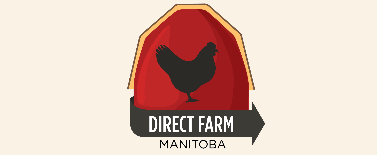A Guaranteed Basic Income
 Thursday, November 14, 2019 at 4:23PM
Thursday, November 14, 2019 at 4:23PM By Gary Martens
 Some people think that we will always have poor people. Others believe that we can eliminate poverty with a program variously called Guaranteed Basic Income, Basic Income, Living Wage, Minimum Income Guarantee or Universal Basic Income among others. I will call it Basic Income in this article.
Some people think that we will always have poor people. Others believe that we can eliminate poverty with a program variously called Guaranteed Basic Income, Basic Income, Living Wage, Minimum Income Guarantee or Universal Basic Income among others. I will call it Basic Income in this article.
The idea is simple: every citizen of Canada, 18 years and older gets a basic income, regardless of employment status. This basic income is enough to pay for the necessities of life. The amount needs to be determined, but it would be designed to bring everyone up to the poverty line.
That sounds simple, but here are the big questions: Why should we want it? How much will it cost? How will we pay for it? And won’t this encourage people just sit around and do nothing?
Why should we want it? Emil Munsterburg in the American Journal of Sociology puts it this way: if we don’t have the necessities of life we respond in one of two ways; we beg or we take what we need by force or stealth. To this society responds in two ways: charity/philanthropy and the police/”justice”system. A basic income for all Canadians, will substantially reduce the cost of the police/”justice system.”
It is going to cost $570 million to bring all Manitobans up to the poverty line. (Statistics Canada 2016) To put that into context, the 2019 Manitoba budget is $13.6 billion. $570 million is a mere 4.2% of our annual budget.
Nevertheless, $570 million is a lot of money. How will we pay for it? By saving 8.5% in health care costs which amounts to $516 million alone (from Evelyn Forget, The Dauphin Basic income pilot project), Justice will save $328 million and Family Services (Welfare) will save $514 million for a total savings of $1.36 billion. This is three times the cost of the Basic Income Program. Even the conservatives among us should want to implement a program that stimulates the economy and saves more money than it costs.
There are two more “proofs” that a Basic Income Program can work: the Old Age Security Program and the Child Benefit Program. Both are in effect basic income programs and they work very well. Both are generally considered good ideas.
What about the last concern “everyone will just sit around and do nothing?” The Old Age Security Program shows no such outcome. 29.3% of folks earning over $100,00 personal income continue employment after they qualify for OAS, whereas only 17.2% of folks earning less than $20,000 continue employment after they qualify for OAS (Statistics Canada 2016). Maslow’s hierarchy of needs shows us that after physical needs are met people desire esteem and self actualization and giving of themselves to a cause bigger than themselves. People realize that happiness is achieved by having meaningful work.
A basic income program for all Canadians would benefit society and the economy, and would eliminate many of the current programs we currently have set up for the poor and disadvantaged in our society.


